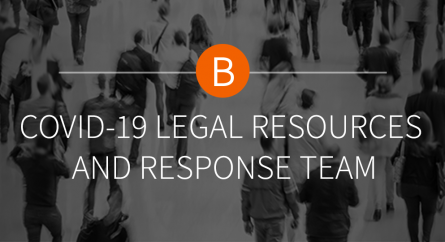Client Alert: Delaying the Inevitable? Pier 1, Chuck E. Cheese, and Rent Abatement in Bankruptcy
The coronavirus pandemic has been particularly cruel to brick-and-mortar retail establishments. As rising infection rates force municipalities to roll back reopening plans, retail and hospitality businesses that rely on in-person sales to generate revenue are finding it impossible to manage fixed costs, especially rent. Many have sought shelter in chapter 11, only to discover that even the federal bankruptcy laws cannot always solve their rent problems.
What Does the Chapter 11 Tenant Owe its Landlord During the Bankruptcy Case?
The tenant must pay for its use and occupancy of the property during the bankruptcy case. The Bankruptcy Code prioritizes the landlord’s right to compensation as an administrative expense of the bankruptcy estate. This right is forward-looking: rent arrearages that accrued pre-filing are not payable until (and only if) the tenant assumes the lease.
The consensus opinion is that the landlord must be paid at the contract rate. A minority view, however, holds that if the tenant ends up rejecting the lease, the landlord can only recover an amount equal to the benefit that the estate received from the use and occupancy, which could be lower than the base rent in the contract. While this view has fallen out of favor since the 1980s, it could remerge in 2021 as COVID-19 pushes an increasing number of businesses into bankruptcy without the funds to pay landlords in full while also satisfying other administrative expenses.
Can the Tenant Delay Payment?
Maybe. Section 365(d)(3) of the Bankruptcy Code requires the tenant to “timely perform” its obligations under a commercial lease. With court approval, the tenant can delay performance for up to two months after the case is filed, but the statute is clear that “the time for performance shall not be extended beyond such 60-day period.”
While this provision appears ironclad, Pier 1 Imports obtained an extension beyond the 60-day limit after the coronavirus pandemic caused it to close all stores in the Spring of 2020. In ordering the rent abatement, the United States Bankruptcy Court for the Eastern District of Virginia observed that section 365(d)(3) provides no remedies to landlords if the debtor fails to comply. Accordingly, if the tenant cannot afford to comply with section 365(d)(3), the landlord is left with an administrative expense claim to be paid at the case’s conclusion. Moreover, the court reasoned, were it to compel rent payments now, it would effectively grant the landlord a “superiority” administrative expense claim over the other creditors at a stage in the case where the estate was teetering on insolvency.
Not all courts agree with the Pier 1 decision. The United States Bankruptcy Court for the Southern District of Texas recently rejected similar arguments by CEC Entertainment, which operates the Chuck E. Cheese restaurant and entertainment chain. The Texas court held that section 365(d)(3) clearly requires the debtor to resume rent payments, in full, after the first 60 days of the case. With a split emerging in the case law, bankruptcy courts will surely revisit this issue in 2021.
Force Majeure and Frustration
Given the limited relief available under the Bankruptcy Code, it is unsurprising that chapter 11 tenants look to their own leases and non-bankruptcy law for help. Chuck E. Cheese asked the Texas bankruptcy court for involuntary rent abatement on the grounds that the force majeure provisions in its leases excused performance. After carefully reviewing the clauses, however, the court concluded that each lease explicitly carved out the tenant’s financial obligations from the force majeure clause. As a sophisticated party, Chuck E. Cheese was bound to the force majeure clause it had negotiated and the court had no power to rewrite the terms.
The court also declined to apply the common law “doctrine of frustration” to excuse Chuck E. Cheese’s performance. Applying the applicable state law, the court noted that the doctrine of frustration only applies when the economic benefit of a contractual agreement is destroyed by an event that the parties did not contemplate at the time of contracting. When parties draft a force majeure clause, however, they are agreeing to allocate the risk arising from a frustrating event that they have contemplated. Unfortunately for Chuck E. Cheese, the court agreed that a pandemic-induced government shutdown came within the force majeure clause in its lease, and for this reason, the tenant could not argue frustration to avoid paying rent.
Conclusion
While no landlord is thrilled when its tenant files bankruptcy, the Bankruptcy Code provides relatively strong protections to ensure that landlords are not forced to extend free rent during the bankruptcy case. It is this author’s opinion that the limited tools at the chapter 11 tenant’s disposal are among the reasons why the “wave of COVID bankruptcies” for small businesses in 2020 was not as large as initially predicted. Nevertheless, landlord and tenant issues are likely to come before the bankruptcy courts with increasing urgency in 2021.
Categorized: Client Alerts, Publications
Tagged In: Bankruptcy, landlords, tenants, chapter 11, Bankruptcy Code, coronavirus, force majeure, COVID-19, Chuck E. Cheese, Pier 1







